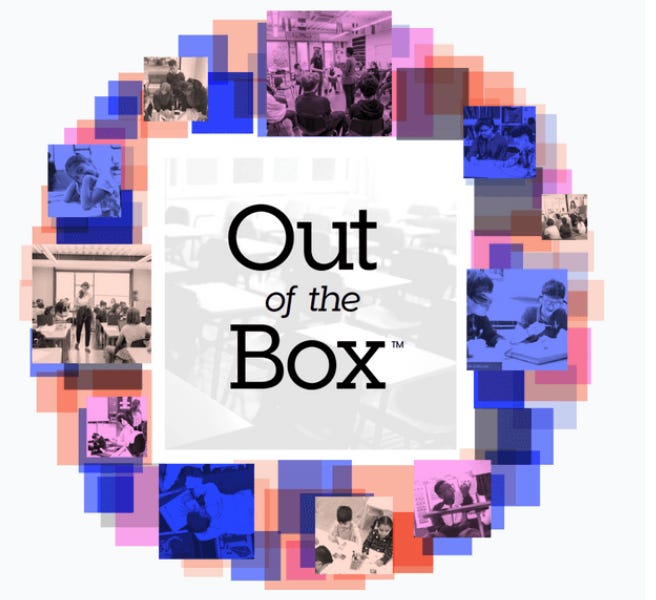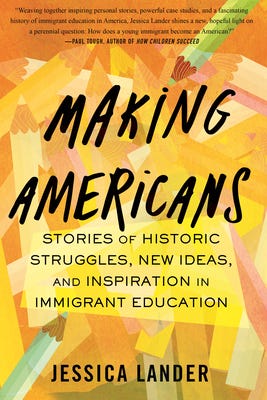Small Talks, No. 81
October 14, 2022
Welcome to the eighty first edition of Small Talks. Every Friday, I highlight 6 areas of weekly joys and reflections in early childhood and the whole family. Small Talks leverages my experience at the intersection of education, philanthropy, and impact investing. Enjoy!
What I’m celebrating -
Powerful analysis that looks at the global learning crisis. Two conclusions:
School is not learning
Learning is more correlated to economic growth than schooling
New science finds differences in resting state connectivity of the brain between mothers & non-mothers, with evidence that parenthood tunes the brain to be more flexible, responsive, and efficient. Yes!
A new 65 page report, released by New Classrooms Innovation Partners and Transcend highlights the role innovative learning models can play in modernizing K-12 education: from Thinking Outside the Box, Seeing the Box, Getting Out of the Box, to Moving Beyond the Box.
For a smile, read this piece on the “bike bus”.
What I’m listening to -
Fortune launched a new podcast on…childcare! Where Is My Village? has five episodes narrating how local governments are addressing child care challenges in absence of a Federal solution,
What I’m reading -
Making Americans: Stories of Historic Struggles, New Ideas and Inspiration in Immigrant Education by teacher Jessica Lander looks at schooling for immigrant families. It is filled with stories, such Texas families who risked deportation to establish the right for undocumented children to attend public schools, and five schools in Aurora, Colorado, that came together to collaborate with community groups, businesses, a hospital, and families to support immigrant children.
This population is a large, growing group in the US: 1 of 4 students under age 17 is an immigrant or the child of immigrants.
What I’m watching -
Amazing TEDTalk “How education can save the world” by Gavin McCormack.
70% learning happens before age 7.
What I’m learning more deeply -
Important, yet sobering new study by Walter Gilliam at Yale University on early care and education professionals’ mental health.
2-3 months into pandemic — 46% with diagnosable level of depression; one year later (Aug 2021) - 56%.
Level of depression and stress being experienced by early care & education professionals during the pandemic is far greater than before the pandemic AND their depression is about twice that of others *during* the pandemic.
Moderate to severe asthma rate for early care & education professionals was about 20% higher than the general public. This raises serious questions regarding the quality of air they breath and other factors.
New York Times’ Dana Goldstein highlights the child care worker shortage crisis with 100,000 workers missing.
For science nerds out there, findings from two labs mark a major milestone in mouse embryonic studies and stem cell biology -- the generation of a mouse embryo model, all without an egg, sperm, or a uterus.
A poem I’m pondering -
Feedback is a gift. Which part above is your favorite? What did I miss? What do you want more or less of? Other recommendations? Please kindly let me know. Thank to all of you who are sending me amazing suggestions.
If you enjoy this newsletter, please help spread the word by sharing with your friends, colleagues, and networks.
Have a wonderful week. Please stay safe and care for each other.
Isabelle







